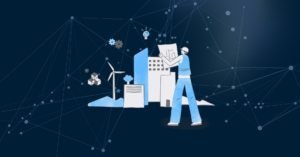ALBANY, NY — New York Gov. Andrew Cuomo’s budget proposal includes a provision that would override a portion of the city’s Local Law 97 (LL97). The provision allows building owners to buy renewable energy credits (RECs) from wind and solar plants upstate instead of paying for pricier efficiency improvements. The New York State Energy Research and Development Authority will contract for a majority of these RECs, called Tier 2, over the next five years. They are allowed to resell them to other parties under the state’s clean energy program. Thus, allowing real estate owners to meet their emissions reduction requirements with the RECs will not drive new investments in renewable energy in New York.
For this reason, some are not pleased with the provision. LL97’s ultimate aim was to make buildings more sustainable via physical upgrades like new insulation, windows, and HVAC systems. Allowing building owners to buy RECs is seen as a weakening of the bill’s original intent. Those who lobbied for the bill argue the REC loophole allows building owners to avoid the hard and costly work of making their buildings more efficient.
Cuomo’s proposal notes that building owners can only use the Tier 2 option if no renewable energy credits from sources delivered directly into the city (Tier 4 RECs) or offshore wind RECs are available. Transmission projects to bring renewables to the city
may not be completed for years. Offshore wind projects also aren’t expected to come online until the 2030s. Real estate interests state the provision is necessary since some building owners would otherwise struggle to meet the reductions because of their previous efficiency investments, and they’d have to pay the penalty if no renewable offsets are available. (LL97
does allow waivers if building owners can demonstrate they could not reasonably comply.)
The enforceable penalty provisions of the New York City emissions law, Local Law 97, don’t go into effect until 2024. To help your prepare, EnergyWatch has organized a
Complete Guide to Preparing for NYC’s Most Ambitious Building Emissions Legislation, featuring everything you need to know about compliance, as well as our expert tips and proprietary research.
Download it here.
 Top Sustainability Trends to Watch in 2025
Top Sustainability Trends to Watch in 2025

 Log In
Log In








